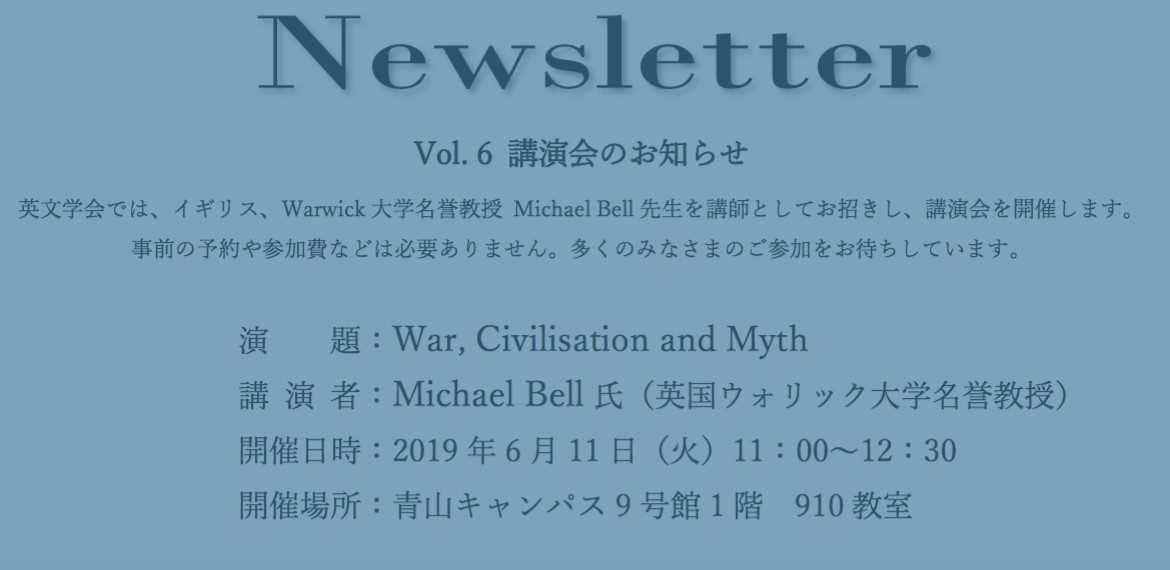
講演会のお知らせ 2019年6月11日(火)War, Civilisation and Myth
英文学会では、イギリス、Warwick大学名誉教授 Michael Bell先生を講師としてお招きし、講演会を開催します。事前の予約や参加費などは必要ありません。多くのみなさまのご参加をお待ちしています。
| 日 時: | 2019年6月11日(火)11:00~12:30 |
|---|---|
| 場 所: | 青山学院大学 青山キャンパス 9号館1階 910教室 |
| 講 演 者 : | Michael Bell氏(英国ウォリック大学名誉教授) |
| タ イ ト ル: | War, Civilisation and Myth |
| 参 加 費: | 無料(事前申し込み不要) |
講演要旨 (Synopsis)
After a century of relative peace in central Europe the Great War focused minds on the nature of civilisation. European colonising of other continents had been justified by a civilising mission but this claim was now thrown into question. At the same time ‘primitive’ peoples, who were usually thought to represent early stages of human development, came to represent not a superstitious past to be overcome, but a desirable alternative to alienated modernity. Early man seemed to have enjoyed a richly integrated form of life in an intimate relation to nature. We can see two radically opposed conceptions of human being here. Sigmund Freud, as a scientific rationalist, maintained the older view and sought to expose the irrational illusions of religion and myth. Without the mastery of the civilised ego the instinctual self was a source of delusion and destruction. Friedrich Nietzsche had argued the opposite: that the apparent destructiveness of instinct and desire were the result of repressive demonising of instinctual life. He sought instead to honour the instincts in name of the god Dionysus and D. H. Lawrence, in his ‘war-time’ novel Women in Love, made the same claim. The ‘Freudian’ and ‘Nietzschean’ views are essentially myths in so far as they offer a totalising view of human being that is not susceptible of proof but governs conduct individually and collectively. In the literature of this period the function of myth as a world view by which men live became self-conscious: literary works adopted myth as their narrative form. Whereas nineteenth-century novels had typically adopted the model of history, modernist fiction more typically placed itself under the sign of myth as in Lawrence’s The Rainbow and James Joyce’s Ulysses.
お問合せ先: 麻生えりか教授



